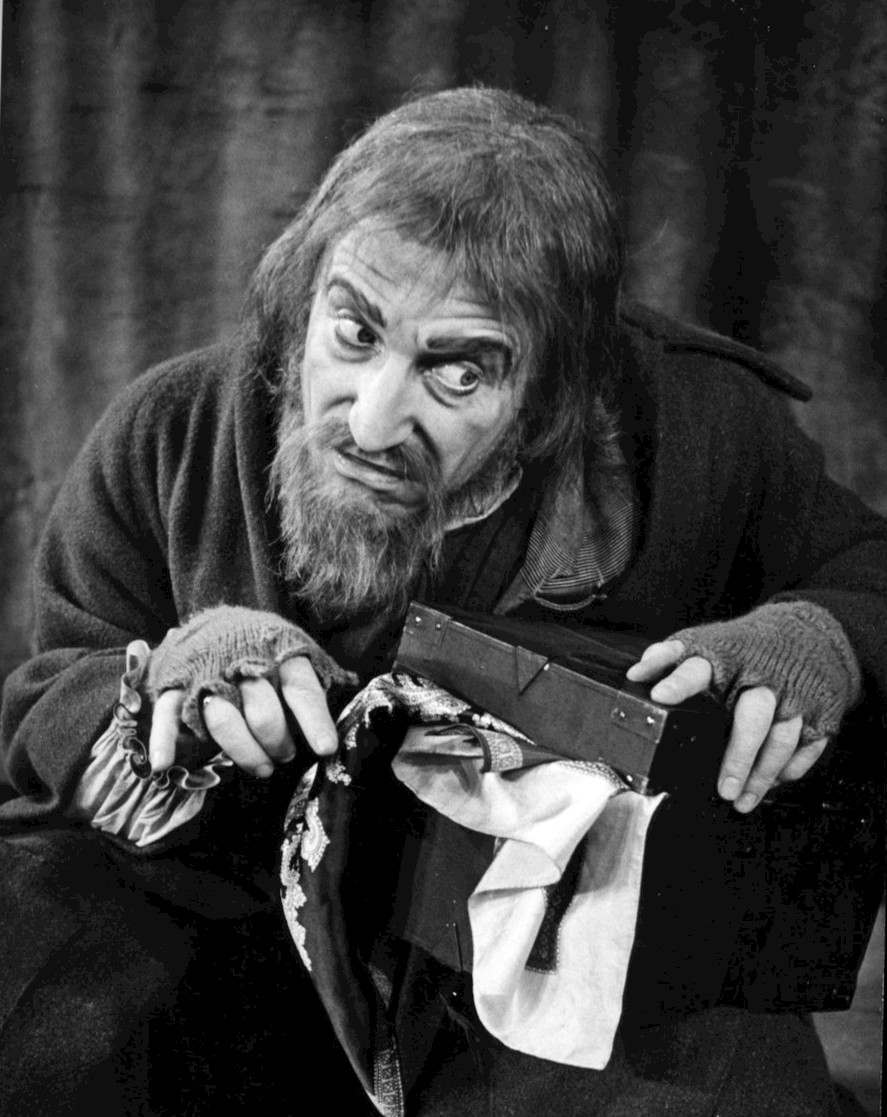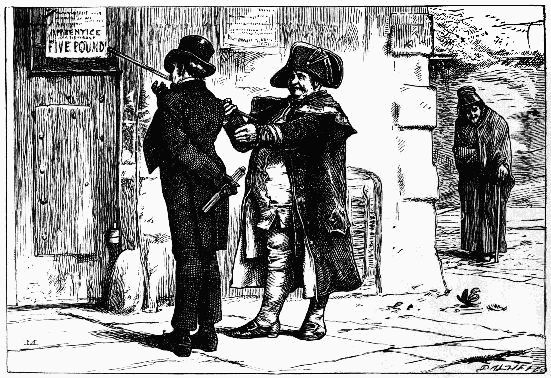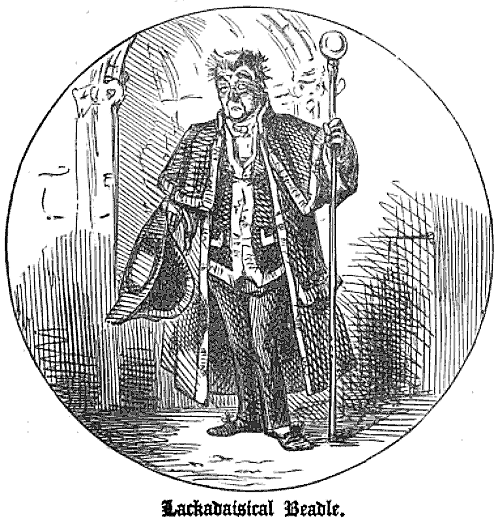|
Oliver! (musical)
''Oliver!'' is a stage musical, with book, music and lyrics by Lionel Bart. The musical is based upon the 1838 novel ''Oliver Twist'' by Charles Dickens. It premiered at the Wimbledon Theatre, southwest London in 1960 before opening in the West End, where it enjoyed a record-breaking long run. ''Oliver!'' ran on Broadway, after being brought to the U.S. by producer David Merrick in 1963. Major London revivals played from 1977 to 1980, 1994 to 1998, 2008 to 2011 and on tour in the UK from 2011 to 2013. Additionally, its 1968 film adaptation, directed by Carol Reed, won six Academy Awards including Best Picture. ''Oliver!'' received thousands of performances in British schools, becoming one of the most popular school musicals. In 1963 Lionel Bart received the Tony Award for Best Original Score. Many songs are well known to the public, such as "Food, Glorious Food", "Consider Yourself" and " I'd Do Anything". Background ''Oliver!'' was the first musical adaptation of a famous ... [...More Info...] [...Related Items...] OR: [Wikipedia] [Google] [Baidu] |
Lionel Bart
Lionel Bart (1 August 1930 – 3 April 1999) was an English writer and composer of pop music and musicals. He wrote Tommy Steele's "Rock with the Caveman" and was the sole creator of the musical ''Oliver!'' (1960). With ''Oliver!'' and his work alongside theatre director Joan Littlewood at Theatre Royal Stratford East, Theatre Royal, Stratford East, he played an instrumental role in the 1960s birth of the British musical theatre scene after an era when American musicals had dominated the West End theatre, West End. Best known for creating the book, music and lyrics for ''Oliver!'', Bart was described by Andrew Lloyd Webber as "the father of the modern British musical". In 1963 he won the Tony Award for Best Original Score for ''Oliver!'', and the Oliver! (film), 1968 film version of the musical won a total of 6 Academy Awards including the Academy Award for Best Picture. Some of his other songs include the theme song to the James Bond film ''From Russia with Love (film), From R ... [...More Info...] [...Related Items...] OR: [Wikipedia] [Google] [Baidu] |
The Independent
''The Independent'' is a British online newspaper. It was established in 1986 as a national morning printed paper. Nicknamed the ''Indy'', it began as a broadsheet and changed to tabloid format in 2003. The last printed edition was published on Saturday 26 March 2016, leaving only the online edition. The daily edition was named National Newspaper of the Year at the 2004 British Press Awards. ''The Independent'' won the Brand of the Year Award in The Drum Awards for Online Media 2023. History 1980s Launched in 1986, the first issue of ''The Independent'' was published on 7 October in broadsheet format.Dennis Griffiths (ed.) ''The Encyclopedia of the British Press, 1422–1992'', London & Basingstoke: Macmillan, 1992, p. 330. It was produced by Newspaper Publishing plc and created by Andreas Whittam Smith, Stephen Glover and Matthew Symonds. All three partners were former journalists at ''The Daily Telegraph'' who had left the paper towards the end of Lord Hartwell' ... [...More Info...] [...Related Items...] OR: [Wikipedia] [Google] [Baidu] |
Pickpocket
Pickpocketing is a form of larceny that involves the stealing of money or other valuables from the person or a victim's pocket without them noticing the theft at the time. It may involve considerable dexterity and a knack for Misdirection (magic), misdirection. A thief who works in this manner is known as a pickpocket. Italy, France and Spain have the highest rates of pickpocketing. As an occupation Pickpockets and other thieves, especially those working in teams, sometimes apply distraction, such as asking a question or bumping into the victim. These distractions sometimes require sleight of hand, speed, misdirection and other types of skills. Pickpockets may be found in any crowded place around the world. However, Barcelona and Rome have been noted as being particularly dangerous pickpocket havens. Thieves have been known to operate in high traffic areas such as mass transit stations, even boarding subway trains so they can use the distractions of crowds and sudden stop-and-g ... [...More Info...] [...Related Items...] OR: [Wikipedia] [Google] [Baidu] |
Artful Dodger
Jack Dawkins, better known as the Artful Dodger, is a character in Charles Dickens's 1838 novel ''Oliver Twist''. The Dodger is a pickpocket and his nickname refers to his skill and cunning in that occupation. In the novel, he is the leader of the gang of child criminals on the streets of London trained and overseen by the elderly Fagin. The term has become an idiom describing a person who engages in skillful deception. Role in the novel In the novel, Jack becomes Oliver's closest friend (although he betrays Oliver when Oliver is caught) and he tries to make him a pickpocket, but he soon realises that Oliver will not succeed and feels sorry for him, saying "What a pity it is he isn't a prig!" He also has a close relationship with Charley Bates. The Artful Dodger is characterised as a child who acts like an adult. He is described as wearing adult clothes which are much too large for him. Like an adult, he seldom gives in to childish urges: Ultimately the Dodger is caught wi ... [...More Info...] [...Related Items...] OR: [Wikipedia] [Google] [Baidu] |
Where Is Love?
"Where is Love?" is a song from the Tony Award-winning British musical ''Oliver!'' and the 1968 film of the same name, based on the 1838 novel ''Oliver Twist'' by Charles Dickens. The musical was written by Lionel Bart and was first staged in London's West End in 1960. Oliver is a young boy on the search for his mother, and comes across many people, friends and criminals alike. Background Oliver Twist, the leading character, sings the song after being thrown into the cellar of a funeral parlour for getting into a fight with Noah Claypole, another servant of the undertaker. Later in the show, a reprise is sung by Mr. Brownlow's housekeeper, Mrs Bedwin. In the 1968 Columbia Pictures musical film version of ''Oliver!'', "Where is Love?" was performed onscreen by Mark Lester, whose singing voice was reportedly dubbed by Kathe Green (the daughter of the film's conductor and musical arranger, Johnny Green), though Lester was actually given credit on the soundtrack album. Cover ve ... [...More Info...] [...Related Items...] OR: [Wikipedia] [Google] [Baidu] |
Oliver! (song)
"Oliver!" is the title song from the 1960s original West End and Broadway musical '' Oliver!'' and the 1968 film of the same name. Background The song begins with the workhouse boys and Mr. Bumble praying for the food they will receive and for a blessing of thankfulness. However, Oliver asks for more gruel and that makes Mr. Bumble and the Widow Corney very angry at him and they think of ways to punish him for his ingratitude and ask who he is. The punishment that Oliver is to receive, as stated in the song is that he is to be sent down a stairway without a bannister and to be fed cockroaches served in a canister or they would push Oliver up a chimney full of soot. Even the Board of Governors is stunned by Oliver's ingratitude and join in the song. The punishment that the Board of Governors suggest is that Oliver should be imprisoned and put up for sale for apprenticeship Apprenticeship is a system for training a potential new practitioners of a trade or profession with ... [...More Info...] [...Related Items...] OR: [Wikipedia] [Google] [Baidu] |
Bumble (Oliver Twist)
Mr. Bumble is a fictional character and minor antagonist in the 1838 novel ''Oliver Twist'' by Charles Dickens. Description When the story was first serialised in ''Bentley's Miscellany'' in 1837, Mr. Bumble is the cruel and self-important beadle – a minor parish official – who oversees the parish workhouse and orphanage of The Mudfog Papers, Mudfog, a country town more than from London where the orphaned Oliver Twist (character), Oliver Twist is brought up. The allusion to Mudfog was removed when the novel was published as a book.''Bentley's Miscellany'', 1837 He is described as "A fat man, and a choleric ... Mr. Bumble had a great idea of his oratorical powers and his importance." While Mr. Bumble preaches Christian principles, he himself fails to live up to these lofty ideals by behaving without compassion or mercy toward the Pauperism, paupers under his charge. In his novels Dickens chose his characters' names carefully and 'Bumble' lives up to the symbolism of his ... [...More Info...] [...Related Items...] OR: [Wikipedia] [Google] [Baidu] |
Beadle
A beadle, sometimes spelled bedel, is an official who may usher, keep order, make reports, and assist in religious functions; or a minor official who carries out various civil, educational or ceremonial duties on the manor. The term has pre- Conquest origins in Old English, deriving from the Old English ''bydel'' ("herald, messenger from an authority, preacher"), itself deriving from ''beodan'' ("to proclaim", which has a modern descendant in the English verb ''bid''). In Old English it was a title given to an Anglo-Saxon officer who summoned householders to council. It is also known in Medieval Latin as ''bedellus''. The Domesday Book refers to Beadles as ''bedelli'' or undersheriffs of manors. In religion In England, the word came to refer to a parish constable of the Anglican Church, one often charged with duties of charity. A famous fictional constabulary beadle is Mr. Bumble from Charles Dickens's classic novel '' Oliver Twist'', who oversees the parish workhouse ... [...More Info...] [...Related Items...] OR: [Wikipedia] [Google] [Baidu] |
Parish
A parish is a territorial entity in many Christianity, Christian denominations, constituting a division within a diocese. A parish is under the pastoral care and clerical jurisdiction of a priest#Christianity, priest, often termed a parish priest, who might be assisted by one or more curates, and who operates from a parish church. Historically, a parish often covered the same geographical area as a Manorialism, manor. Its association with the parish church remains paramount. By extension the term ''parish'' refers not only to the territorial entity but to the people of its community or congregation as well as to church property within it. In England this church property was technically in ownership of the parish priest ''Ex officio member, ex officio'', vested in him on his institution to that parish. Etymology and use First attested in English in the late 13th century, the word ''parish'' comes from the Old French , in turn from , the Romanization of Greek, Romanisation of ... [...More Info...] [...Related Items...] OR: [Wikipedia] [Google] [Baidu] |
Gruel
Gruel is a food consisting of some type of cereal—such as ground oats, wheat, rye, or rice—heated or boiled in water or milk. It is a thinner version of porridge that may be more often drunk rather than eaten. Historically, gruel has been a staple of the Western diet, especially for peasants. Gruel may also be made from millet, hemp, barley, or, in hard times, from chestnut flour or even the less-bitter acorns of some oaks. Gruel has historically been associated with feeding the sick and recently weaned children. ''Gruel'' is also a colloquial expression for any watery food of unknown character, e.g., pea soup. Gruel has often been associated with poverty, with negative associations attached to the term in popular culture, as in the Charles Dickens novels ''Oliver Twist'' and ''A Christmas Carol''. History Gruel predates the earliest civilizations, emerging in hunter-gatherer societies as a meal of gathered grains soaked in water. For these societies, the application of wa ... [...More Info...] [...Related Items...] OR: [Wikipedia] [Google] [Baidu] |
Georgia Brown (English Singer)
Georgia Brown (21 October 1933 – 5 July 1992) was an English singer and actress. Early life Georgia Brown, born Lilian Claire Klot,Barron, James"Georgia Brown, An Actress, 57; Was in 'Oliver!'"''The New York Times'', 6 July 1992 was born and raised in the East End of London. The daughter of Mark and Annie (née Kirshenbaum) Klot, Brown grew up in a large, extended Jewish family of Russian descent. Her father worked in a textile factory and as a bookmaker. Brown attended the Central Foundation Grammar School. During the London Blitz, she was evacuated to the mining village of Six Bells, Abertillery, Monmouthshire, Wales. Career During an initial performing career as a nightclub singer, she adopted the professional name Georgia Brown with reference to two of her favourite repertoire items: " Sweet Georgia Brown" and "Georgia on My Mind". At the age of 17, she appeared at the Embassy Club in London in April 1951 to mixed reviews and she then went into a number of stage prese ... [...More Info...] [...Related Items...] OR: [Wikipedia] [Google] [Baidu] |
Ron Moody
Ron Moody (born Ronald Moodnick; 8 January 1924 – 11 June 2015) was an English actor, composer, singer and writer. He was best known for his portrayal of Fagin in '' Oliver!'' (1968) and its 1983 Broadway revival. Moody earned a Golden Globe Award and an Academy Award nomination for the film, as well as a Tony Award nomination for the stage production. Other notable projects include '' The Mouse on the Moon'' (1963), Mel Brooks' '' The Twelve Chairs'' (1970) and '' Flight of the Doves'' (1971), in which Moody shared the screen with ''Oliver!'' co-star Jack Wild. Early life and education Moody was born on 8 January 1924 in Tottenham, Middlesex, the son of Kate (née Ogus; 1898–1980) and Bernard/Barnett Moodnick (1896–1964), a studio executive. His father was a Russian Jew and his mother was a Lithuanian Jew; said Moody, "I'm 100% Jewish—totally kosher!" He was a cousin of director Laurence Moody and actress Clare Lawrence. His surname was legally changed to the m ... [...More Info...] [...Related Items...] OR: [Wikipedia] [Google] [Baidu] |





